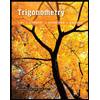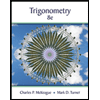Let f:[-T, 1]→ R, f(x) = x then the trigonometric Fourier series of is given by (-1)" cos(nx) and it +4 n =1 n? converges O uniformly on [-n,n]. O converges in the mean, i.e. lim f - sall = 0, where s, is the nth partial sum of the Fourier series of f. n+ 00 O converges pointwise but not uniformly on (- T, TT). converges in the mean (i.e. lim f – sll=0, where sn is the nth partial sum of the Fourier series of f.), but %3D not pointwise. converges in the mean (i.e. lim f-Sn = 0, where s, is the nth partial sum of the Fourier series of f)and n- 00 uniformly on [-T, T]. O uniformly on (-1, TT) and converges to 0 at xo = + TT.
Let f:[-T, 1]→ R, f(x) = x then the trigonometric Fourier series of is given by (-1)" cos(nx) and it +4 n =1 n? converges O uniformly on [-n,n]. O converges in the mean, i.e. lim f - sall = 0, where s, is the nth partial sum of the Fourier series of f. n+ 00 O converges pointwise but not uniformly on (- T, TT). converges in the mean (i.e. lim f – sll=0, where sn is the nth partial sum of the Fourier series of f.), but %3D not pointwise. converges in the mean (i.e. lim f-Sn = 0, where s, is the nth partial sum of the Fourier series of f)and n- 00 uniformly on [-T, T]. O uniformly on (-1, TT) and converges to 0 at xo = + TT.
Trigonometry (11th Edition)
11th Edition
ISBN:9780134217437
Author:Margaret L. Lial, John Hornsby, David I. Schneider, Callie Daniels
Publisher:Margaret L. Lial, John Hornsby, David I. Schneider, Callie Daniels
Chapter1: Trigonometric Functions
Section: Chapter Questions
Problem 1RE:
1. Give the measures of the complement and the supplement of an angle measuring 35°.
Related questions
Question
![Let f:[-T, 1]→ R, f(x) = x then the trigonometric Fourier series of is given by
(-1)"
cos(nx) and it
+4
n =1 n?
converges
O uniformly on [-n,n].
O converges in the mean, i.e. lim f - sall = 0, where s, is the nth partial sum of the Fourier series of f.
n+ 00
O converges pointwise but not uniformly on (- T, TT).
converges in the mean (i.e. lim f – sll=0, where sn is the nth partial sum of the Fourier series of f.), but
%3D
not pointwise.
converges in the mean (i.e. lim f-Sn = 0, where s, is the nth partial sum of the Fourier series of f)and
n- 00
uniformly on [-T, T].
O uniformly on (-1, TT) and converges to 0 at xo = + TT.](/v2/_next/image?url=https%3A%2F%2Fcontent.bartleby.com%2Fqna-images%2Fquestion%2Fe9aa93f0-4fee-4cff-986d-d04c43b222ad%2Fe78e1d2a-a465-4fc6-8f6a-21e5bff3bd44%2Fzqhht2b_processed.png&w=3840&q=75)
Transcribed Image Text:Let f:[-T, 1]→ R, f(x) = x then the trigonometric Fourier series of is given by
(-1)"
cos(nx) and it
+4
n =1 n?
converges
O uniformly on [-n,n].
O converges in the mean, i.e. lim f - sall = 0, where s, is the nth partial sum of the Fourier series of f.
n+ 00
O converges pointwise but not uniformly on (- T, TT).
converges in the mean (i.e. lim f – sll=0, where sn is the nth partial sum of the Fourier series of f.), but
%3D
not pointwise.
converges in the mean (i.e. lim f-Sn = 0, where s, is the nth partial sum of the Fourier series of f)and
n- 00
uniformly on [-T, T].
O uniformly on (-1, TT) and converges to 0 at xo = + TT.
Expert Solution
This question has been solved!
Explore an expertly crafted, step-by-step solution for a thorough understanding of key concepts.
Step by step
Solved in 2 steps with 2 images

Knowledge Booster
Learn more about
Need a deep-dive on the concept behind this application? Look no further. Learn more about this topic, trigonometry and related others by exploring similar questions and additional content below.Similar questions
Recommended textbooks for you

Trigonometry (11th Edition)
Trigonometry
ISBN:
9780134217437
Author:
Margaret L. Lial, John Hornsby, David I. Schneider, Callie Daniels
Publisher:
PEARSON

Trigonometry (MindTap Course List)
Trigonometry
ISBN:
9781305652224
Author:
Charles P. McKeague, Mark D. Turner
Publisher:
Cengage Learning


Trigonometry (11th Edition)
Trigonometry
ISBN:
9780134217437
Author:
Margaret L. Lial, John Hornsby, David I. Schneider, Callie Daniels
Publisher:
PEARSON

Trigonometry (MindTap Course List)
Trigonometry
ISBN:
9781305652224
Author:
Charles P. McKeague, Mark D. Turner
Publisher:
Cengage Learning


Trigonometry (MindTap Course List)
Trigonometry
ISBN:
9781337278461
Author:
Ron Larson
Publisher:
Cengage Learning